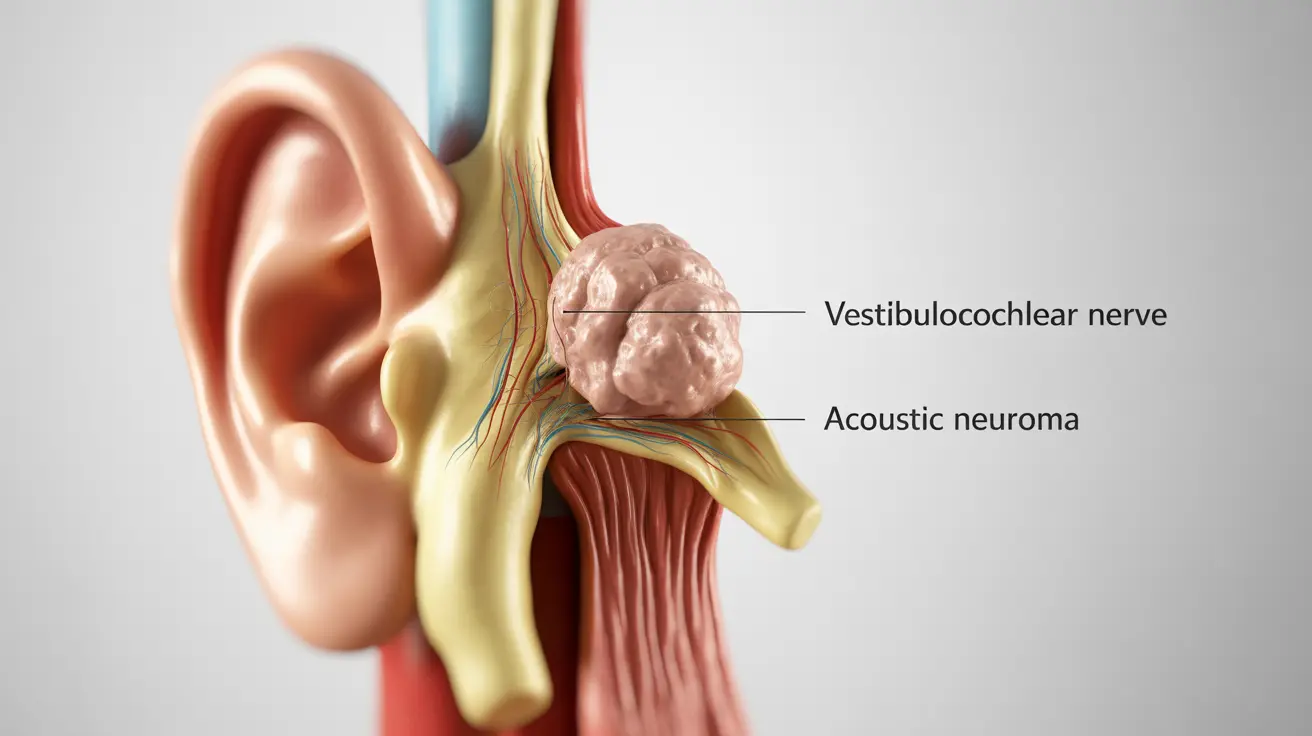If you're experiencing a combination of ringing in your ears, dizziness, and pressure in your head, these symptoms might be pointing to a condition called acoustic neuroma. While these symptoms can be concerning, understanding their potential cause and available treatment options can help you take appropriate action for your health.
This comprehensive guide will explore the connection between these symptoms and acoustic neuroma, helping you understand when to seek medical attention and what to expect during diagnosis and treatment.
Understanding the Symptoms Triad
The combination of ringing in ears, dizziness, and pressure in the head can significantly impact daily life. These symptoms often develop gradually and may become more noticeable over time:
Ringing in the Ears (Tinnitus)
The most common early sign is persistent ringing, buzzing, or whooshing sounds in one ear. This type of tinnitus typically affects only one side and may become progressively louder over time.
Dizziness and Balance Issues
Vertigo and unsteady balance often accompany acoustic neuroma. These symptoms occur because the tumor affects the vestibular nerve, which plays a crucial role in maintaining balance.
Head Pressure and Fullness
A sensation of pressure or fullness in the affected ear can feel similar to having water in your ear or the pressure changes experienced during air travel. This pressure may extend to create a feeling of heaviness in the head.
Diagnostic Process and Medical Evaluation
When these symptoms present together, healthcare providers typically follow a comprehensive diagnostic approach:
- Detailed medical history review
- Physical examination
- Hearing tests (audiometry)
- Imaging studies (MRI with contrast)
- Balance function tests
Treatment Approaches and Management
Treatment options vary depending on several factors, including tumor size, growth rate, and symptom severity:
Observation (Watch and Wait)
For small, slow-growing tumors, regular monitoring through MRI scans may be recommended, especially if symptoms are mild.
Radiation Therapy
Stereotactic radiosurgery can be effective for smaller tumors, offering a non-invasive treatment option that helps preserve hearing function.
Surgical Intervention
Surgery might be necessary for larger tumors or cases with severe symptoms. Different surgical approaches are available based on tumor size and location.
When to Seek Medical Attention
It's important to consult a healthcare provider if you experience:
- Persistent ringing in one ear lasting more than a few days
- Progressive hearing loss or fullness in one ear
- Ongoing balance problems or dizziness
- Recurring headaches or pressure sensations
Frequently Asked Questions
What causes ringing in the ears, dizziness, and pressure in the head in acoustic neuroma?
These symptoms occur when an acoustic neuroma, a benign tumor, grows on the vestibulocochlear nerve. The tumor's pressure on this nerve affects hearing, balance, and spatial awareness, leading to these characteristic symptoms.
How is acoustic neuroma diagnosed when symptoms include tinnitus and dizziness?
Diagnosis typically involves a combination of hearing tests, balance assessments, and magnetic resonance imaging (MRI) with contrast. These tests help doctors visualize the tumor and evaluate its impact on hearing and balance function.
What treatment options are available for acoustic neuroma with symptoms of ear ringing and balance problems?
Treatment options include observation with regular monitoring, stereotactic radiosurgery, or conventional surgery. The choice depends on factors such as tumor size, growth rate, patient age, and overall health status.
Can acoustic neuroma cause persistent pressure or fullness in one ear without infection?
Yes, acoustic neuroma can cause a sensation of fullness or pressure in one ear without any infection present. This occurs due to the tumor's physical pressure on surrounding structures in the internal auditory canal.
When should I see a doctor if I experience ringing in one ear along with dizziness or head pressure?
You should consult a healthcare provider if you experience persistent ringing in one ear, especially when combined with dizziness or head pressure, that lasts longer than a few days. Early evaluation can lead to better outcomes and appropriate treatment planning.




